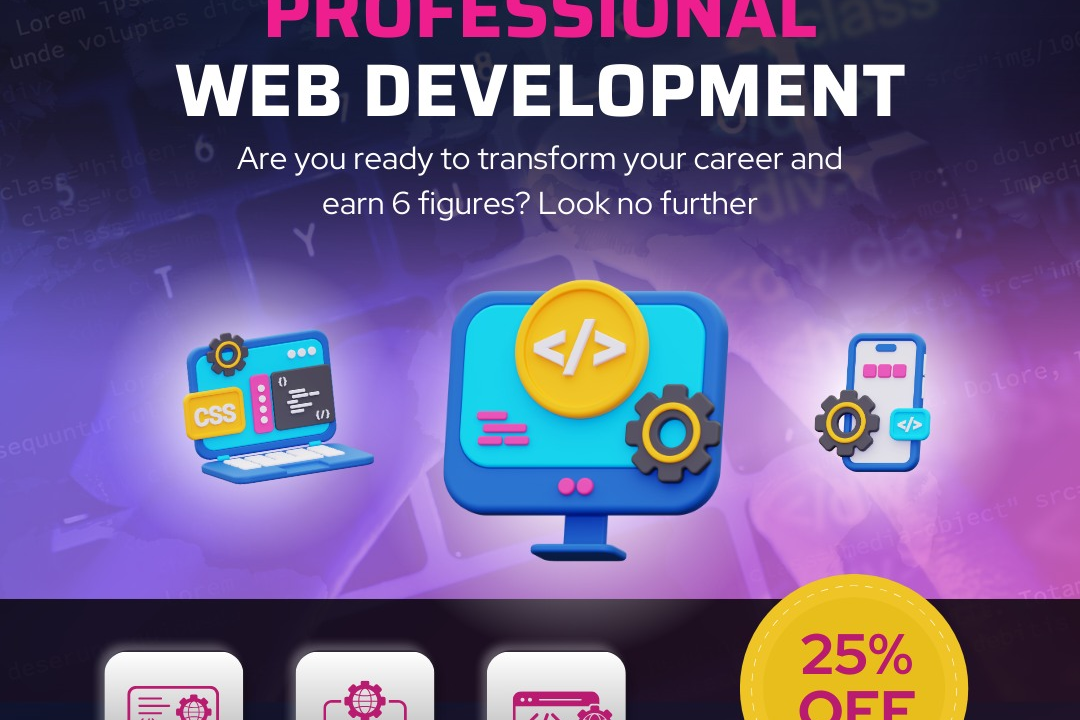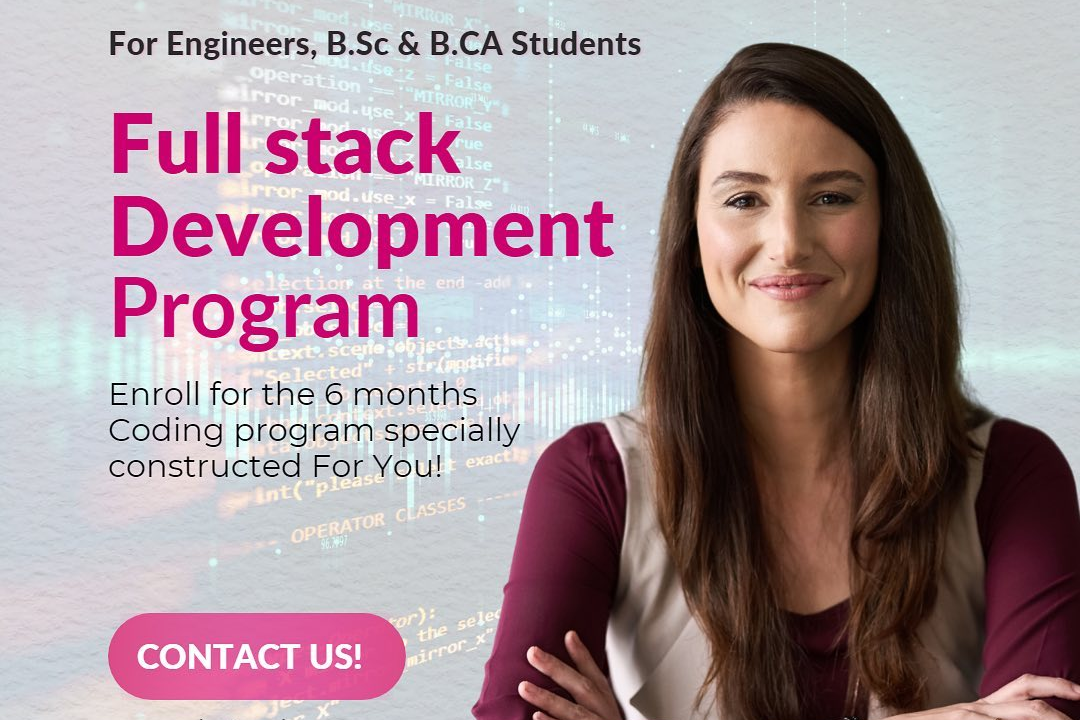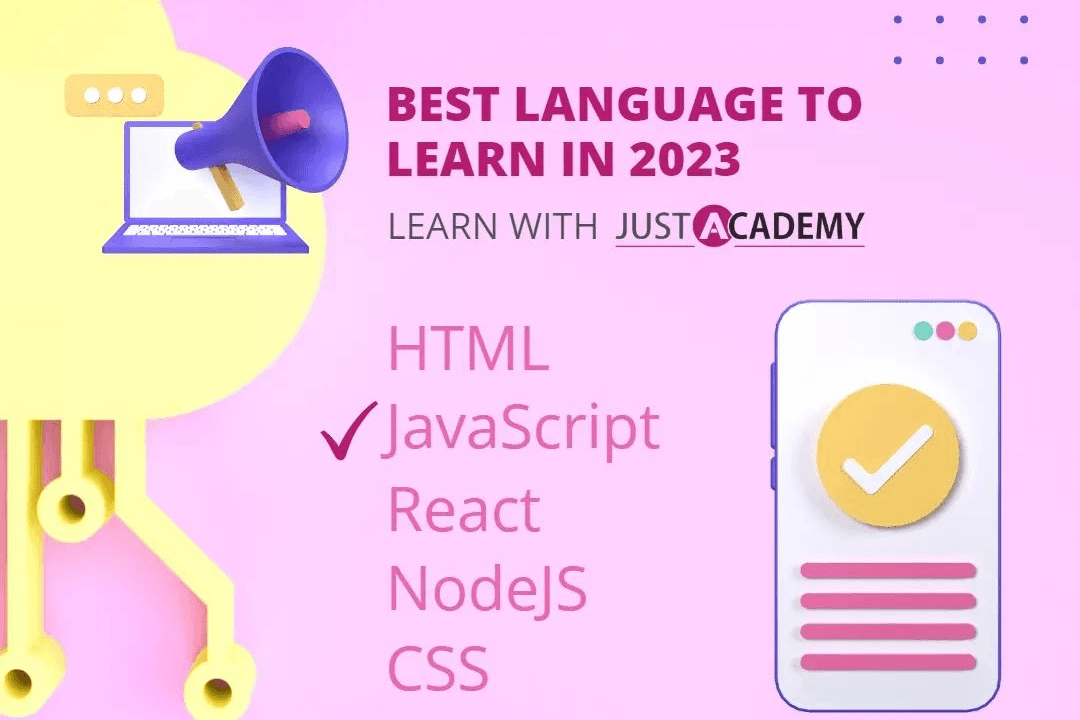React Js Developer Interview Questions
Comprehensive React JS Developer Interview Questions and Answers
React Js Developer Interview Questions
Interview questions for React JS developers assess their proficiency in building and maintaining dynamic user interfaces with the React library. These questions evaluate candidates' understanding of concepts such as component lifecycle, state management, data flow, and best practices in React development. Such questions are crucial because they help employers determine the candidate's competence in creating responsive, interactive, and scalable web applications using React, a popular front-end framework.
To Download Our Brochure: https://www.justacademy.co/download-brochure-for-free
Message us for more information: +91 9987184296
1 - Explain the Virtual DOM and its benefits in React:
React maintains a virtual representation of the DOM, allowing efficient updates by comparing the virtual and real DOM and only updating the necessary elements.
2) Describe the React component life cycle:
Initializing (constructor, getDerivedStateFromProps, render), mounting (componentDidMount), updating (shouldComponentUpdate, getDerivedStateFromProps, render), unmounting (componentWillUnmount).
3) Explain the purpose of Redux in React:
Redux is a state management library that provides a predictable and centralized way to manage application state, ensuring consistency and preventing data loss.
4) Describe the difference between props and state in React:
Props are immutable data passed from parent components to child components, while state is mutable data that is managed within a component and can be updated using the `setState` method.
5) Explain how React handles events:
React uses event delegation to handle events efficiently. When an event occurs, it bubbles up the DOM tree, and React calls the corresponding event handler function defined in the component.
6) Describe the purpose of the webpack configuration file in React:
The webpack configuration file defines how the React application is bundled and transpiled for different environments (development, production).
7) Explain the concept of Hooks in React:
Hooks allow you to use state and other React features without writing a class component.
8) Describe the difference between controlled and uncontrolled components in React:
In controlled components, the state of the form elements is managed in the React component, while in uncontrolled components, it is managed in the DOM.
9) Explain the purpose of the `render` method in React:
The `render` method returns the JSX (JavaScript XML) that defines the user interface for a component.
10) Describe the best practices for optimizing performance in React:
Use memoization, virtualize large lists, avoid unnecessary re renders, and profile your application to identify bottlenecks.
11 - Explain how React handles asynchronous operations:
React uses Promises, async/await, and the callback pattern to handle asynchronous operations and maintain the order of execution.
12) Describe the purpose of the `useEffect` hook in React:
The `useEffect` hook allows you to perform side effects (e.g., fetching data, subscribing to events) in functional components.
13) Explain how to handle errors in React:
React uses the `componentDidCatch` lifecycle method to catch errors that occur during rendering or in lifecycle methods.
14) Describe the concept of immutability in React:
Immutable state in React means that objects should not be modified directly but instead replaced with new objects using the `setState` method, ensuring consistent and predictable behavior.
15) Explain the purpose of the `context` API in React:
The `context` API provides a way to share state between unrelated components without passing props through intermediate components.
High Value Actions:
- Answer questions accurately and comprehensively. Provide detailed, well researched responses that demonstrate your knowledge and expertise.
- Initiate and contribute to discussions.* Share insights, ask questions, and engage with others to add value to the community.
- Upvote and comment on quality content.* Support other users who have contributed valuable information.
- Create original content.* Share your own research, experiences, or perspectives to contribute to knowledge.
- Participate in challenges and contests.* These events offer additional opportunities to earn points and showcase your skills.
- Consistency and Engagement:
- Visit and interact with the platform regularly.* Active participation shows your commitment and dedication.
- Earn points consistently over time.* Even small contributions accumulate and add up.
- Connect with other users.* Build relationships and engage with the community to increase your visibility.
- Promotion and Sharing:
- Share the platform with others.* Invite friends, colleagues, and followers to join and participate.
- Promote your content on social media.* Share your responses, discussions, and original content to attract a wider audience.
- Link to relevant sources.* Provide references and citations to support your claims and add credibility to your responses.
- Quality and Impact:
- Strive for high quality content.* Write clear, concise, and well organized responses.
- Make sure your answers are useful and informative.* Help others learn and grow.
- Focus on making a positive impact.* Contribute to the community in a meaningful way by sharing valuable knowledge and insights.
- Additional Tips:
- Review the platform's point system.* Understand how points are earned and awarded.
- Be patient and persistent.* Building a high score takes time and effort.
- Don't get discouraged by setbacks.* Focus on the long term goal of accumulating points.
- Have fun and enjoy the process.* The journey of learning and sharing knowledge should be enjoyable.
- Course Overview
- This course comprehensively prepares aspiring React JS developers for job interviews by covering key concepts, commonly asked questions, and practical coding challenges. It includes topics such as React fundamentals, component architecture, state management, data fetching, and performance optimization. Through a combination of theoretical exploration, hands-on exercises, and interview simulations, the course empowers candidates with the knowledge and skills necessary to excel in technical interviews and secure their dream React JS developer roles.
- Course Description
- Master the essential knowledge and techniques for acing React JS developer interviews. This comprehensive course covers core concepts, common interview questions, and advanced topics, equipping you with the skills and confidence to excel in any interview.
- Key Features
- 1 - Comprehensive Tool Coverage: Provides hands-on training with a range of industry-standard testing tools, including Selenium, JIRA, LoadRunner, and TestRail.
- 2) Practical Exercises: Features real-world exercises and case studies to apply tools in various testing scenarios.
- 3) Interactive Learning: Includes interactive sessions with industry experts for personalized feedback and guidance.
- 4) Detailed Tutorials: Offers extensive tutorials and documentation on tool functionalities and best practices.
- 5) Advanced Techniques: Covers both fundamental and advanced techniques for using testing tools effectively.
- 6) Data Visualization: Integrates tools for visualizing test metrics and results, enhancing data interpretation and decision-making.
- 7) Tool Integration: Teaches how to integrate testing tools into the software development lifecycle for streamlined workflows.
- 8) Project-Based Learning: Focuses on project-based learning to build practical skills and create a portfolio of completed tasks.
- 9) Career Support: Provides resources and support for applying learned skills to real-world job scenarios, including resume building and interview preparation.
- 10) Up-to-Date Content: Ensures that course materials reflect the latest industry standards and tool updates.
Benefits of taking our course
Functional Tools
1 - React.js: A JavaScript library for building interactive user interfaces.
Allows developers to create complex and dynamic web applications with ease, improving efficiency and productivity.
Provides a declarative programming model, simplifying the process of describing the desired state of the UI, rather than explicitly manipulating the DOM.
Supports component based architecture, enabling code reusability and maintainability, resulting in reduced development time and improved team collaboration.
2) Redux: A state management library for React.js applications.
Facilitates predictable state updates, ensuring that the application's state remains consistent and manageable, especially as the application's complexity grows.
Maintains a central store for application state, allowing for easy and centralized access to data, reducing the need for complex data management logic.
Provides a unidirectional data flow, promoting code predictability and reducing state related errors, enhancing application stability and debugging efficiency.
3) JavaScript (ES6+): The programming language used for React.js development.
Incorporates modern JavaScript features such as classes, modules, and arrow functions, enabling developers to write concise and expressive code.
Supports asynchronous programming techniques, allowing for efficient handling of user interactions and data retrieval, resulting in responsive and high performing applications.
Provides a rich library of built in functions and objects, facilitating various development tasks, such as data manipulation, error handling, and DOM manipulation, saving valuable development time.
4) Node.js: A JavaScript runtime environment for server side development.
Enables developers to write JavaScript code that runs on the server, providing the ability to build complete full stack React.js applications.
Supports various server side functionalities, including HTTP request handling, database interaction, and caching, allowing for a comprehensive application architecture.
Integrates well with React.js, facilitating the sharing of code and data between the client and server, promoting code consistency and reducing development effort.
5) Git: A distributed version control system.
Allows developers to track code changes, collaborate effectively, and manage multiple versions of their codebase.
Facilitates code sharing through remote repositories, allowing teams to work on different aspects of the project simultaneously, improving productivity and project organization.
Supports branching and merging, enabling developers to experiment with different code changes without affecting the main codebase, ensuring a stable development process.
- Play regularly. The more you play, the more points you will earn.
- Win games.* Winning games earns you more points than losing games.
- Complete quests.* Quests are special challenges that you can complete to earn bonus points.
- Join a club.* Clubs are groups of players who team up to earn points together.
- Invite friends to play.* When you invite friends to play, you will earn bonus points.
- Use power ups.* Power ups are special items that can help you earn more points.
- Take advantage of bonuses.* Bonuses are special events that offer additional points for completing certain tasks.
- Be patient.* Earning points takes time and effort. Don't get discouraged if you don't see results immediately. Just keep playing and you will eventually earn more points.
Browse our course links : https://www.justacademy.co/all-courses
To Join our FREE DEMO Session:
This information is sourced from JustAcademy
Contact Info:
Roshan Chaturvedi
Message us on Whatsapp:
Email id: info@justacademy.co
Important Interview Questions On React-Native












